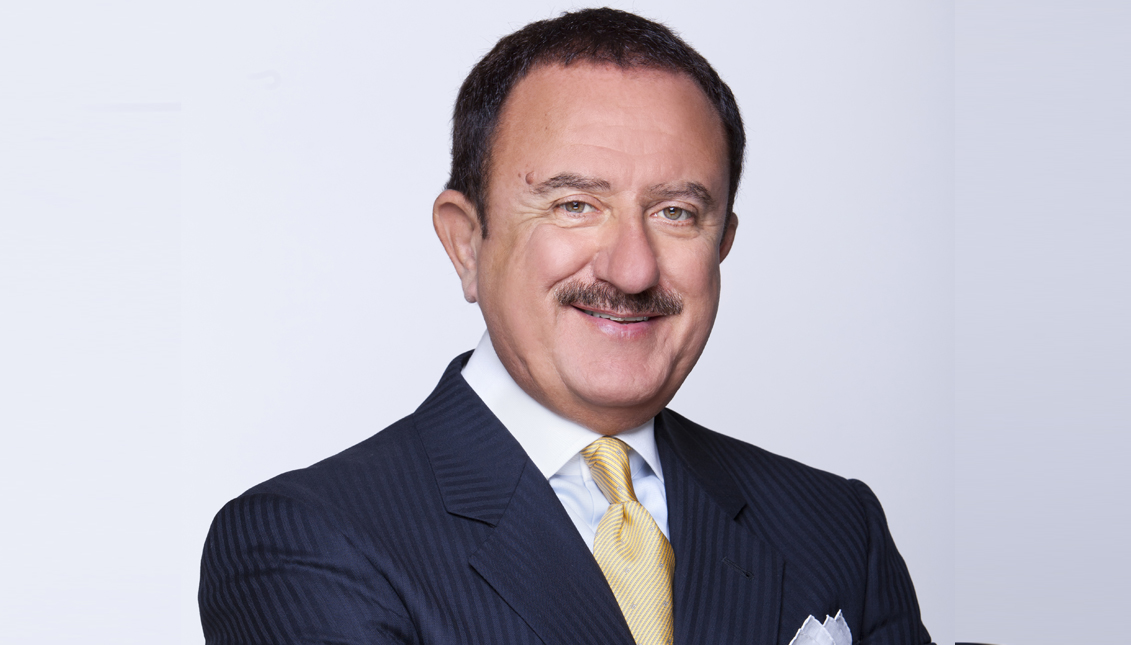
Changing the Latino Narrative
Through various initiatives with L’ATTITUDE and Latino Donor Collaborative, Sol Trujillo has committed to reshaping the true narrative of what Latinos mean to…
Over the years, Sol Trujillo has become one of the strongest voices for the Latino community nationwide.
A global business leader who has made an indelible mark on each organization he has been associated with, Trujillo has been outspoken and fearless in his pursuit to change the narrative on Latinos in the United States.
When asked why he is so passionate about defending the Latino community, his answer was short, stern and succinct.
“I am Latino... and I am a Trujillo,” he said during an interview with AL DÍA.
However, behind those two short, yet powerful statements, is a world of truths, data, knowledge and experiences that only Trujillo can quantify.
Trujillo’s family has roots in the United States that date back all the way to the early 1500s.
He noted that historically, the Spaniards originally came to the northern part of the modern U.S. in search of gold, before beginning to move inland and eventually ended up around what is now Santa Fe, New Mexico.
“That’s where they started colonizing, 100 years before the Mayflower landed over there by Boston,” said Trujillo.
“So when people talk about their country, I feel this is my country and I don’t feel that anybody else has a right to claim it by themselves... And I say this proudly,” he added.
Born in Cheyenne, Wyoming in the early 1950s, Trujillo spent much of the early part of his life living in the midwest.
He attended elementary, middle and high school in the state’s capital before going on to earn a bachelor’s degree in business from the University of Wyoming in Laramie, Wyoming. He later earned an MBA in finance from the same university.
Trujillo began his professional business career as an economic forecaster in the Mountain Bell division of AT&T where he worked for nearly two decades.
At age 32, he was selected to serve as CEO of operations, becoming the youngest officer in the history of the company.
The distinctions didn’t end there, as just over a decade later, he took over as president and CEO of US West Communications, becoming the first U.S. born Latino to lead a Fortune 200 company.
As he progressed throughout his career, Trujillo began working for global companies, including Orange SA in France, and Telstra in Australia.
While working and living abroad, Trujillo remained attentive to the things that were happening to and being said about the U.S. Latino community.
“I saw what was happening in my country while I was gone. And the narrative about Latinos had gone very negative,” he said.
He recalled former Maricopa County Sheriff Joe Arpaio’s hard stance on immigration, as well as a piece of Arizona legislation that made it legal to target Latinos simply if you suspect something.
He recalled how the late Herman Cain suggested building an electric fence at the border so that Latino immigrants would get electrocuted and die if they tried to climb it.
“I said to myself, ‘That’s not my country,’” Trujillo proclaimed. “My country has been an open country, it’s an immigrant nation.”
Upon hearing the denigration that was taking place in the U.S. against Latinos, Trujillo decided to return to the country.
“I came back and I said, ‘this narrative about Latinos in particular has to change because number one, it’s factually incorrect,’” said Trujillo.
He later met with his friend Henry Cisneros, former mayor of San Antonio and Secretary of Housing and Urban Development, to talk about what needed to be done to change that negative narrative about Latinos.
“And because I’m a business person, I started thinking about changing our brand because our brand had become damaged by others who were factually incorrect,” said Trujillo.
“Talking about Latinos as takers; coming across borders; entering this country, becoming parasites basically on our economy; tying up schools, hospitals, going on welfare,” he added.
Trujillo’s reaction was simply: “This is wrong,” and he set out to make things right.
From this came the Latino Donor Collaborative (LDC).
Founded in 2010, LDC is a nonprofit organization dedicated to reshaping the perception of Latinos as part of the American social mainstream.
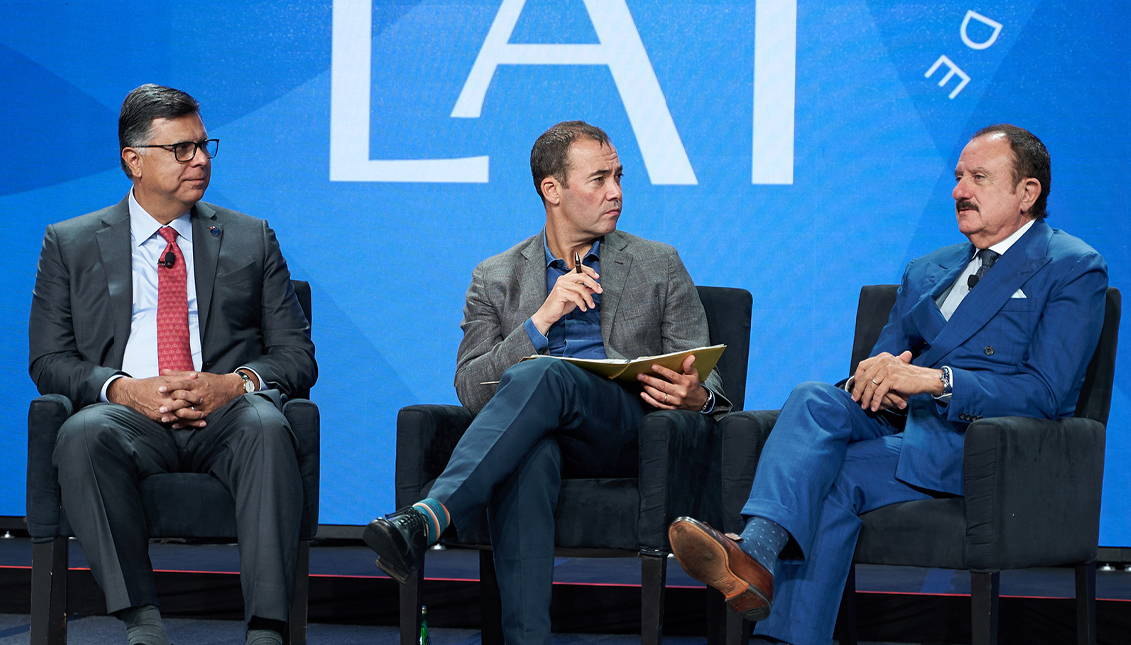
“Its mission was not to do, at that point in time, what La Raza was doing or what LULAC or any other organization [was doing], but always to gather the data and talk,” said Trujillo.
As a businessman, Trujillo set out to talk about GDP, productivity, the labor market, consumption, and the true impact that Latinos on the U.S. economy.
“And so we started gathering the data, we gathered studies about productivity, about labor, and then finally, one day I decided that we needed to build our own GDP report,” said Trujillo.
The Latino GDP is currently at about $2.7 trillion, an increase from $2.3 trillion in 2017 and $1.7 trillion in 2010.
Given the level of consumption and productivity Latinos have within the U.S. economy, if it were its own nation, the U.S. Latino cohort would be the seventh largest GDP in the world. In addition, the cohort would be the fastest growing major economy in the world.
LDC also played a role in starting the Stanford Latino Entrepreneurship Initiative (SLEI), a research and education collaboration between Stanford University and the Latino Business Action Network that focuses on the Latino entrepreneurial segment of the U.S. economy and the Latino cohort’s impact on the business sector.
“What we found was that a vast majority of new businesses created in the United States were created by Latinos,” said Trujillo.
According to the SLEI, the number of Latino-owned businesses has grown 34% over the past 10 years compared to just 1% of all other businesses.
“We’re job creators, we’re entrepreneurs, we’ve investors, we’re all kinds of people inside the economy,” he added.
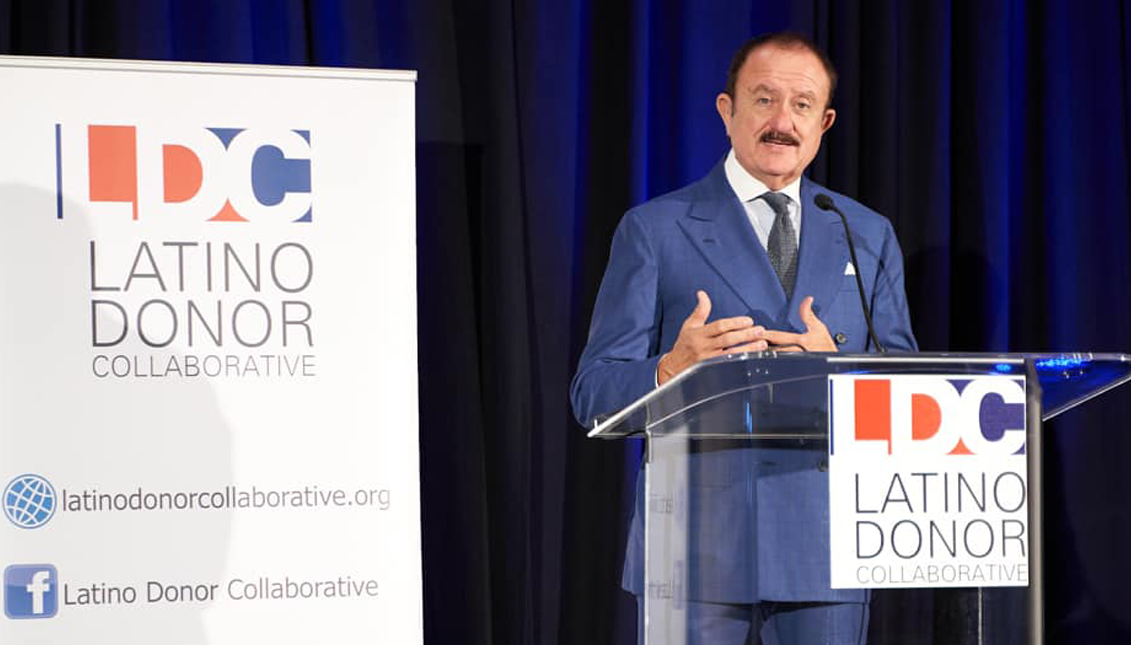
In Trujillo’s words, this data is the “Latino family photo.”
Since he began this work over a decade ago, Trujillo has made it a point to gather the data and present the facts when discussing the Latino community and not just speak “from mi corazón.”
With the value of Latinos so clear and evident, Trujillo often asks the question: Qué más quieres?
In 2018, Trujillo co-founded alongside entrepreneur, public policy advocate and investor Gary Acosta, L’ATTITUDE, the largest business and media event focused on the Latino-driven New Mainstream Economy.
RELATED CONTENT
When brainstorming the name, Trujillo said the first step was embedding direction into the name — referring to latitude [and longitude].
However, the spelling is different.
“We didn’t want to have the English spelling of it,” he said.
“We wanted to create our own spelling because we’re creating a new imprint on how we think about the new mainstream economy,” added Trujillo.
The spelling, he said, emphasizes the Latino element of the new mainstream economy in the U.S.
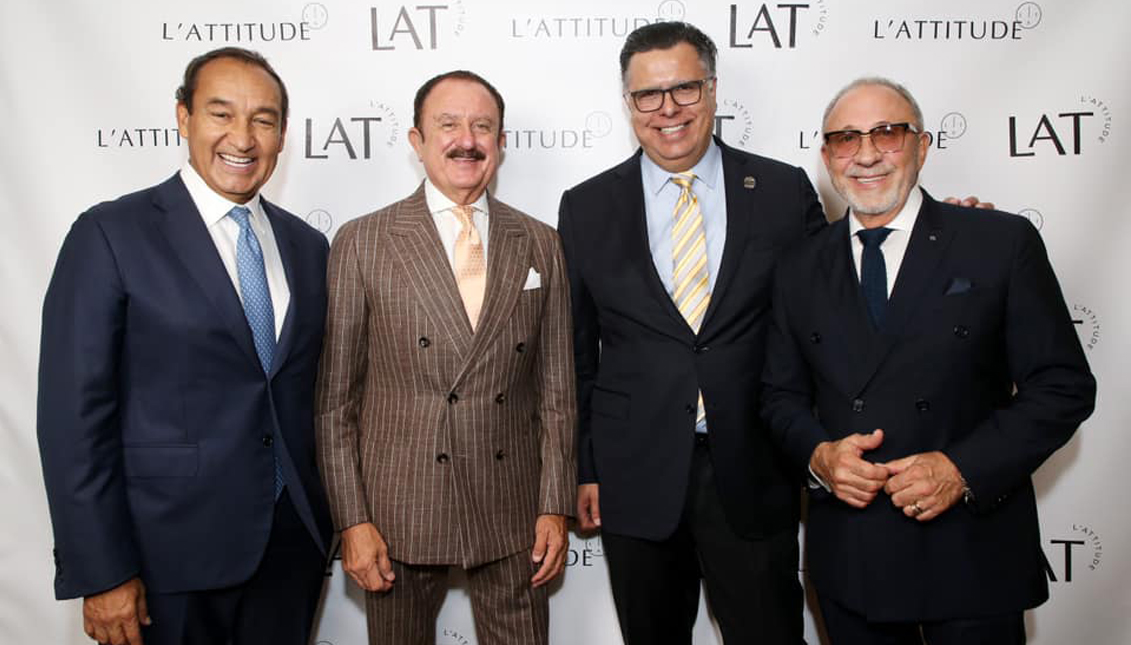
Each year since its launch, L’ATTITUDE has provided a platform for executives, CEOs, political leaders, economists, entertainers, media leaders and more to gather and discuss the data that is so significant for the U.S. economy. This year’s event saw an audience of over 3,200 people in attendance.
“We don’t call this a Latino event,” said Trujillo. “This is an event for all people in this country… [the attendees] know how important it is to understand the cohort, to connect with the cohort and to use the data that we create in their business strategies.”
It has been reported that the overwhelming majority of new businesses and startups launched in the U.S. since the 2008 Recession have been started by Latinos.
That quantifies the entrepreneurial spirit that is so prevalent in the Latino community in the U.S.
So, too, does the Latino GDP and impact the Latino cohort is adding economically.
However, while the level of Latino entrepreneurship is high, the growth and scaling of many of those businesses resulting in the accumulation and building of wealth for the community is a farther reach.
“Playing in the capitalism game is core,” said Trujillo. “One of the most important elements of competing in a capitalist system is getting access to capital.”
A recent report by Bain & Company, Inc., revealed that just 1% of the investment shares from the top 25 private equity and venture capital firms went towards Latino-owned businesses.
To help address this concern, Trujillo and Acosta started the L’ATTITUDE Ventures, a purpose-led fund that invests in early-stage U.S. Latino-led and owned businesses with large and high-growth opportunities, to address the underfunding of U.S. Latino entrepreneurs.
“I wanted to create a new prototype of how we can create a friendly place for Latino and Latino businesses to go and compete for capital,” said Trujillo.
He noted that the fund will also help those firms see that these Latino-owned businesses are worth investing in and provide opportunities for great economic impact.
Access to capital remains the most critical piece to creating wealth for the Latino community in the U.S., and Trujillo is determined to help the young, hard-working, entrepreneurial cohort driving the new mainstream economy obtain some of that capital.
And he encourages investment firms and large corporations to do the same.
“The big story here is, if you're an American and you’re living in the United States of America, you better love and appreciate and support and help catalyze the effect of this cohort,” said Trujillo.
“If you like growth, if you want your kids to have jobs, if you want your business to be successful, and you want us to be competitive with all other nations around the world,” he continued.








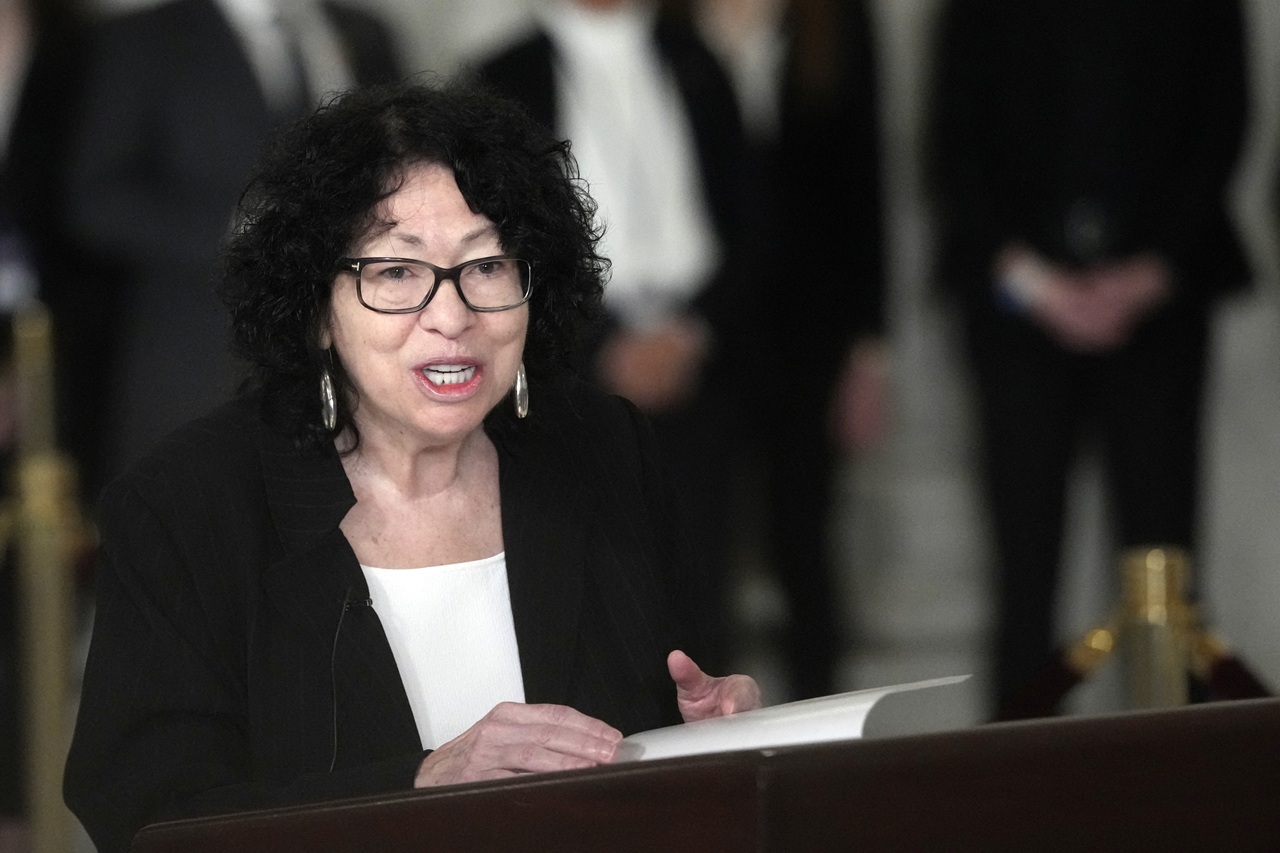

LEAVE A COMMENT: